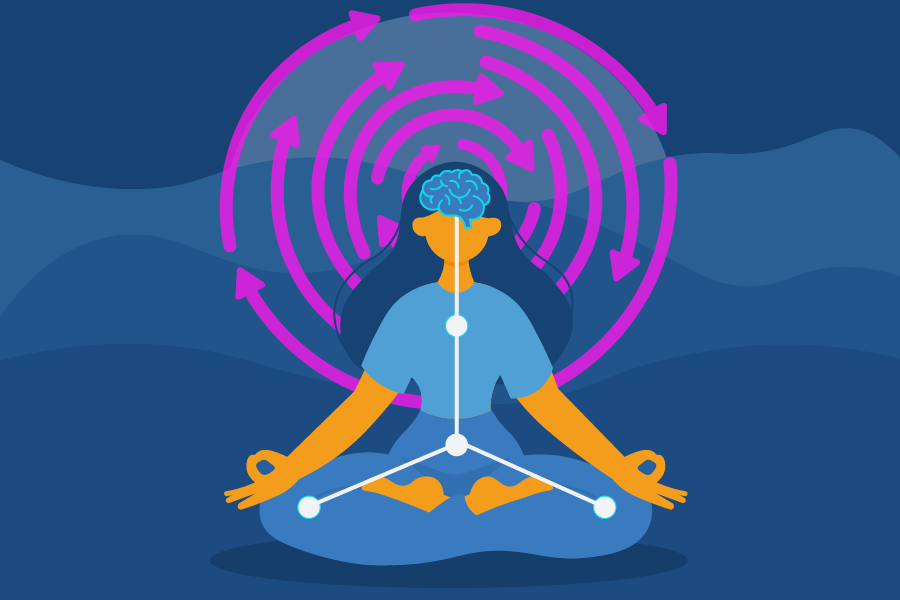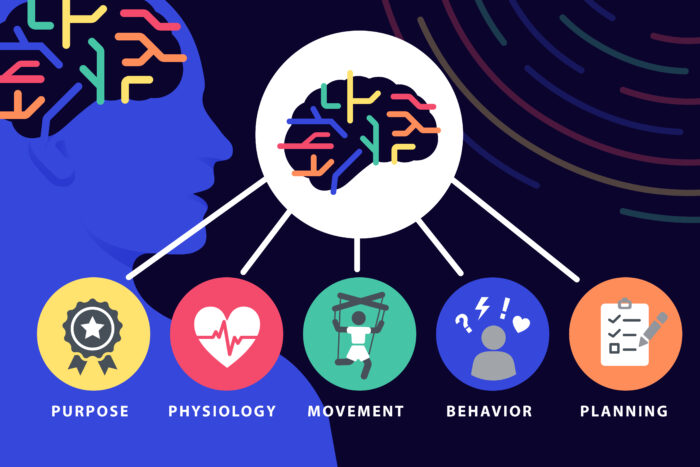The mind-body connection is a powerful concept. It links our mental and physical health.
Many people underestimate how closely their thoughts and emotions affect their bodies. Stress, for example, can lead to headaches or stomachaches. On the other hand, positive thinking can boost our immune system. Understanding this connection helps us lead healthier lives.
By recognizing how our minds influence our bodies, we can take steps to improve our overall well-being. This relationship between mind and body is essential for achieving balance and harmony in life. In this blog post, we will explore the fascinating ways our mental state impacts our physical health. Dive in and discover how nurturing this connection can make a difference in your everyday life.

Credit: www.youtube.com
Mind-body Connection Basics
The mind-body connection is the link between thoughts and physical health. Our emotions can affect our bodies. Stress can cause headaches. Happiness can boost energy. This connection is powerful.
Practices like meditation and yoga can strengthen this link. They help the mind and body work together. People feel better and live healthier lives. Understanding this connection is key to well-being.
Ancient cultures knew about the mind-body connection. Chinese medicine and Ayurveda focused on this link. They believed in balancing mind and body for health.
In the past, doctors only treated the body. Now, they understand the mind's role too. Modern science studies this connection more. It shows how important it is.
Science Behind The Mind-body Link
The mind-body connection shows how thoughts and feelings affect physical health. Studies reveal stress can cause real physical symptoms. Positive thinking may boost the immune system.
Neuroscience Insights
The brain and body talk constantly. Signals travel through nerves and hormones. These signals control how we feel and act. Stress can change our body's responses. Relaxation can improve health. Scientists study these links. They use brain scans and other tools. Neurons are key. They send messages fast. These messages affect our organs and muscles. Understanding this helps us improve our well-being.
Psychological Research
Studies show our thoughts impact our bodies. Positive thinking can boost health. Negative thoughts can cause problems. Mindfulness helps. It reduces stress and improves mood. Many tests support this. People feel better after using these methods. Simple practices can make a big difference. They help balance the mind and body.
Mental Health's Impact On Physical Health
Stress can make the body weak. It can lower the body's defenses. This means getting sick more often. The immune system is the body's guard. When stressed, this guard becomes tired. It can't fight germs as well. So, keeping calm is very important.
Feeling happy helps the body. It makes the heart strong. It also keeps the brain healthy. Sadness can hurt the body. It can cause pain and tiredness. So, smiling is good for health. Talking to friends helps too. It lifts the mood and makes one feel better.
Physical Health Influencing Mental State
Good physical health often leads to a better mental state. Regular exercise and a balanced diet can reduce stress. Taking care of your body helps your mind stay strong and clear.
Exercise Benefits
Exercise helps keep the body strong. It also boosts the mind. People feel happier after exercising. Stress levels go down. Sleep improves with regular exercise. Energy levels rise too. Exercise also helps fight depression. It can make people feel more confident. Exercise is very important.
Diet And Nutrition
Good food choices matter. Eating fruits and veggies is key. They give the body needed vitamins. Junk food can make people feel bad. Sugary snacks cause energy crashes. Balanced meals help the brain work better. Drink plenty of water. Staying hydrated is crucial. A healthy diet boosts mood and energy.
Holistic Practices For Balance
Meditation can calm the mind and reduce stress. Just 10 minutes a day can make a difference. Mindfulness helps you stay present. It means paying attention to now, not the past or future. Both practices are simple but powerful. They can improve focus and emotional health.
Yoga and Tai Chi combine movement and breath. They help the body and mind relax. Yoga includes poses that stretch muscles. Tai Chi features slow, flowing movements. Both practices can improve flexibility and balance. They also boost mental clarity and reduce anxiety.
Integrative Medicine Approaches
Functional medicine looks at the whole person. It focuses on the root cause of illness. Doctors use detailed tests to understand your body. They work to balance your body systems. This can help improve overall health. It is not just about treating symptoms. It is about finding and fixing underlying issues. Functional medicine often uses nutrition, lifestyle changes, and natural treatments.
Complementary therapies work with regular medical care. They can help with stress, pain, and other issues. Some common therapies include yoga, acupuncture, and massage. These therapies can improve well-being. They are safe and can be effective. Many people find them helpful and relaxing. Always talk to your doctor before starting any new therapy. They can help you choose the best options for you.
Lifestyle Changes For Wellness
Eating well helps the mind and body. Choose fruits, vegetables, and lean meats. Drink water often. Avoid sugary drinks and junk food. Exercise daily. Walk, run, or play a sport. Stay active for at least 30 minutes each day.
Good sleep is vital. Aim for 7-9 hours each night. Create a bedtime routine. Turn off screens before bed. Keep your room dark and quiet. Rest helps the body heal. It also keeps the mind sharp. Avoid caffeine late in the day.

Credit: www.sandstonecare.com
Personal Stories Of Transformation
John was always tired. He had no energy for his kids. One day, he started yoga. After a few weeks, John felt better. He had more energy. His mind was calm. John’s life changed.
Lisa had stress at work. She had headaches every day. She began meditation. Slowly, her headaches went away. Lisa felt more relaxed. Her work improved. Lisa was happier.
Dr. Smith is a wellness coach. He believes in the power of the mind. He says, "A calm mind can heal the body." Dr. Smith has helped many people. They feel better with his tips.
Ms. Lee is a therapist. She uses art therapy. Ms. Lee says, "Art helps people express feelings." Many of her clients have healed through drawing and painting.

Credit: medicine.washu.edu
Frequently Asked Questions
What Is The Mind-body Connection?
The mind-body connection refers to the link between mental and physical health. Thoughts, emotions, and attitudes can influence physical well-being. Similarly, physical health can affect mental states.
How Does Stress Affect The Body?
Stress triggers the body's fight-or-flight response, releasing hormones like cortisol. This can lead to physical symptoms such as headaches, muscle tension, and fatigue. Chronic stress may contribute to serious health conditions.
Can Meditation Improve Physical Health?
Yes, meditation can improve physical health. It reduces stress, lowers blood pressure, and enhances immune function. Regular practice promotes overall well-being by fostering a calm and focused mind.
How Do Emotions Impact Physical Health?
Emotions significantly impact physical health. Positive emotions can boost immune function and reduce pain. Negative emotions, like anger or sadness, can weaken the immune system and increase disease risk.
Conclusion
Understanding the mind-body connection can transform your daily life. Healthy mind, healthy body. Simple practices like meditation, exercise, and proper diet help. They bring balance and peace. Small changes lead to big benefits. Stay mindful of your thoughts and feelings.
Take care of your body. They both work together. Embrace the journey of connecting mind and body. Enjoy a more harmonious and fulfilling life.
.png)






0 Comments